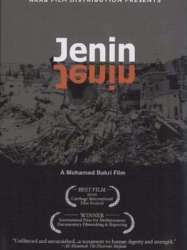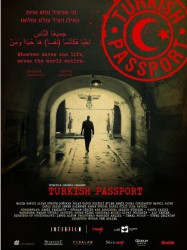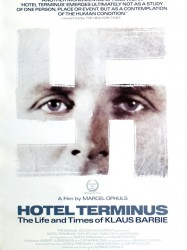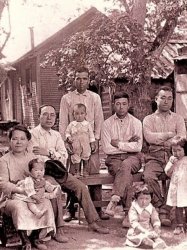The Trial est un film de genre Documentaire
The Trial (2009)

Si vous aimez ce film, faites-le savoir !
- Infos
- Casting
- Infos techniques
- Photos
- Vidéos
- Passages TV
- Citations
- Personnages
- Musique
- Récompenses
Durée 1h12
Genres Documentaire
The Trial is a 2009 documentary film made by Headland Pictures following the trial for war crimes of the former Prime Minister of Kosovo, Ramush Haradinaj.
Directed and produced by Rob O'Reilly and John Murphy, the film follows Haradinaj's legal team behind the scenes as they struggle to defend their client. It also features interviews with Haradinaj himself, as well as Soren Jessen-Petersen, the former head of UNMIK in Kosovo, and Klaus Reinhardt, the former head of NATO in Kosovo.
The film was shot in mainly in the Netherlands and Kosovo.
The film premiered at the Galway Film Fleadh in 2009.
^ http://www.headlandpictures.com/the-trial-film.html
^ http://www.galwayfilmfleadh.com/pr_2009.php?p=wednesday/the_trail
Synopsis
In September 1998, at the end of the Balkan wars, the military of Yugoslavia discovered 37 dead bodies in a concrete canal in western Kosovo. Seven years later, the Prime Minister of Kosovo would be falsely accused of their murder.Commentaires
Postez un commentaire :
Suggestions de films similaires à The Trial
Il y a 8965 ayant les mêmes genres cinématographiques, 3870 films qui ont les mêmes thèmes (dont 219 films qui ont les mêmes 4 thèmes que The Trial), pour avoir au final 70 suggestions de films similaires.Si vous avez aimé The Trial, vous aimerez sûrement les films similaires suivants :

State 194 (2012)
, 1h38Origine Israel
Genres Documentaire
Thèmes Afrique post-coloniale, Religion, Documentaire sur le droit, Documentaire sur la guerre, Documentaire historique, Documentaire sur une personnalité, Documentaire sur la politique, Documentaire sur la religion, Politique, Religion juive
Note57%





The documentary follows the plan that Palestinian Prime Minister Salam Fayyad puts forth in 2009 for the Palestinians to achieve statehood. It follows the progress made by the Palestinians but also "the political quagmire" that threatens the progress. The documentary shows the following people:

Umurage (2002)
, 52minutesOrigine Espagne
Genres Documentaire
Thèmes Afrique post-coloniale, Le racisme, Documentaire sur la discrimination, Documentaire sur le droit, Documentaire sur la guerre, Documentaire historique, Documentaire sur une personnalité, Documentaire sur la politique, Politique
Au Rwanda, une centaine de membres de l’association Ukuri Kuganze, essentiellement formée de survivants du génocide, et quelques-uns de leurs bourreaux, libérés après d’être confessés et avoir demandé pardon en 2003, se réunissent dans un centre de réinsertion. Ces bourreaux retournent chez eux, souvent dans les lieux mêmes où ils ont perpétré leurs crimes et ils doivent « faire face » à leurs victimes et leur demander pardon. En 1994, en l’espace de 100 jours, près d’un million de personnes avaient été assassinées, soit près de 10 000 morts chaque jour.

Wiebo's War (2012)
, 1h33Origine Canada
Genres Documentaire
Thèmes L'environnement, La famille, Religion, Le terrorisme, Documentaire sur le droit, Documentaire sur l'environnement, Documentaire sur la guerre, Documentaire historique, Documentaire sur une personnalité, Documentaire sur la politique, Documentaire sur la religion, Documentaire sur les technologies, Documentaire sur le terrorisme, Politique
Note72%






Le procès de Henry Kissinger (2002)
, 1h20Réalisé par Eugene Jarecki
Origine Etats-Unis
Genres Documentaire
Thèmes Documentaire sur le droit, Documentaire sur la guerre, Documentaire historique, Documentaire sur une personnalité, Documentaire sur la politique, Politique
Acteurs Brian Cox
Note75%





Réalisé pour la BBC d'après le document à charge du journaliste anglais Christopher Hitchens Les Crimes de M. Kissinger (publié en France en 2001 chez Saint-Simon), le documentaire d'Eugene Jarecki et Alex Gibney soutient que le lauréat du prix Nobel de la paix doit être tenu pour responsable du maintien des forces américaines au Vietnam après 1968, de l'invasion du Cambodge, du coup d'Etat qui renverse le président chilien Salvador Allende en 1973 et des massacres au Timor-Oriental. Mais pour les deux réalisateurs l'ancien secrétaire d'Etat de Richard Nixon et Gerald Ford n'est pas seulement un politicien cynique prêt à tout pour conquérir puis conserver le pouvoir. Ils affirment que Kissinger est un authentique criminel de guerre. Mais ils se contentent pour cela de clamer la pertinence de l'ouvrage de Christopher Hitchens - le plus souvent avec de longues interventions du journaliste - sans se donner les moyens d'étayer leur thèse.

Jenin, Jenin (2003)
, 54minutesRéalisé par Mohammad Bakri
Genres Documentaire
Thèmes Afrique post-coloniale, Religion, Documentaire sur le droit, Documentaire sur la guerre, Documentaire historique, Documentaire sur une personnalité, Documentaire sur la politique, Documentaire sur la religion, Politique, Religion juive
Note73%





Jenin, Jenin est un documentaire sur ce qu'il se serait passé lors de la bataille de Jenine, dans le cadre de l'opération Rempart, dans le village de Jénine en territoire palestinien, impliquant Tsahal (l'armée israélienne) en 2002 (en réaction à une série d'attentats dont celui du 27 mars 2002 à l'hôtel Park de Netanya), où le cinéaste laisse la parole aux habitants de la ville.

Turkish Passport (2011)
, 1h31Genres Drame, Documentaire, Historique
Thèmes Le racisme, Religion, Documentaire sur la discrimination, Documentaire sur le droit, Documentaire sur la guerre, Documentaire historique, Documentaire sur une personnalité, Documentaire sur la politique, Documentaire sur la religion, Politique, Religion juive, Documentaire sur la Seconde Guerre mondiale
Note79%





Turkish Passport tells the story of diplomats posted to Turkish embassies and consulates in several European countries, who saved numerous Jews during the Second World War. Whether they pulled them out of Nazi concentration camps or took them off the trains that were taking them to the camps, the diplomats, in the end, ensured that the Jews who were Turkish citizens could return to Turkey and thus be saved. Based on the testimonies of witnesses who traveled to Istanbul to find safety, Turkish Passport also uses written historical documents and archive footage to tell this story of rescue and bring to light the events of the time. The diplomats saved not only the lives of Turkish Jews, but also rescued foreign Jews condemned to a certain death by giving them Turkish passports. In this dark period of history, their actions lit the candle of hope and allowed these people to travel to Turkey, where they found light. Through interviews conducted with surviving Jews who had boarded the trains traveling from France to Turkey, and talks with the diplomats and their families who saved their lives, the film demonstrates that "as long as good people are ready to act, evil cannot overcome".
 , 4h27
, 4h27Réalisé par Marcel Ophuls
Genres Guerre, Documentaire
Thèmes Documentaire sur le droit, Documentaire sur la guerre, Documentaire historique, Documentaire sur une personnalité, Politique, Documentaire sur la Seconde Guerre mondiale, Histoire de France, L'Occupation allemande en France
Acteurs Claude Lanzmann, Marcel Ophuls, Jeanne Moreau, Bertrand Tavernier
Note75%





Ce documentaire trace le portrait complexe et détaillé d'un des plus grands criminels de guerre : Klaus Barbie, connu pour être le boucher de Lyon. Officier de la Gestapo ayant torturé à mort Jean Moulin et mené à la déportation de centaines de juifs de France, notamment les enfants d'Izieu, découvrez également sa double vie d'agent des services secrets américains puis d'homme d'affaires en Bolivie. Résultant d'une enquête de deux ans auprès de quatre-vingt personnes interviewées dans le monde entier, ce film révèle un éclairage important sur la responsabilité de chaque partie concernant les crimes et la traque de Klaus Barbie.

The Cats of Mirikitani (2006)
, 1h14Genres Documentaire
Thèmes Les attentats du 11 septembre 2001, La prison, Le racisme, Religion, Le terrorisme, Transport, Aviation, Documentaire sur l'art, Documentaire sur la discrimination, Documentaire sur le droit, Documentaire sur la guerre, Documentaire historique, Documentaire sur une personnalité, Documentaire sur la politique, Documentaire sur la religion, Documentaire sur les technologies, Documentaire sur le terrorisme, Politique, Religion musulmane, Documentaire sur la Seconde Guerre mondiale, Film catastrophe, Film de catastrophe aérienne, Détournement d'avion
Note81%





In 2001 Japanese American painter, Jimmy Mirikitani (born Tsutomu Mirikitani), and over 80 years old, was living on the streets of lower Manhattan. Filmmaker, Linda Hattendorf, took an interest and began

Family Gathering (1988)
, 30minutesOrigine Etats-Unis
Genres Documentaire
Thèmes La famille, L'immigration, La prison, Le racisme, Documentaire sur le monde des affaires, Documentaire sur le cinéma, Documentaire sur la discrimination, Documentaire sur le droit, Documentaire sur la guerre, Documentaire historique, Documentaire sur une personnalité, Politique, Documentaire sur la Seconde Guerre mondiale, Documentaire autobiographique
Acteurs Keith Hamilton Cobb
Note23%






Checkpoint (2003)
, 1h20Origine Israel
Genres Documentaire
Thèmes Afrique post-coloniale, Religion, Documentaire sur le droit, Documentaire sur la guerre, Documentaire historique, Documentaire sur une personnalité, Documentaire sur la politique, Documentaire sur la religion, Politique, Religion juive
Note77%





Checkpoint is shot in cinéma vérité style with no narration and very little context. Shamir himself is absent from the film except for one scene in which a border guard asks him to try to make him "look good," and Shamir asks how he should do that.
 Connexion
Connexion